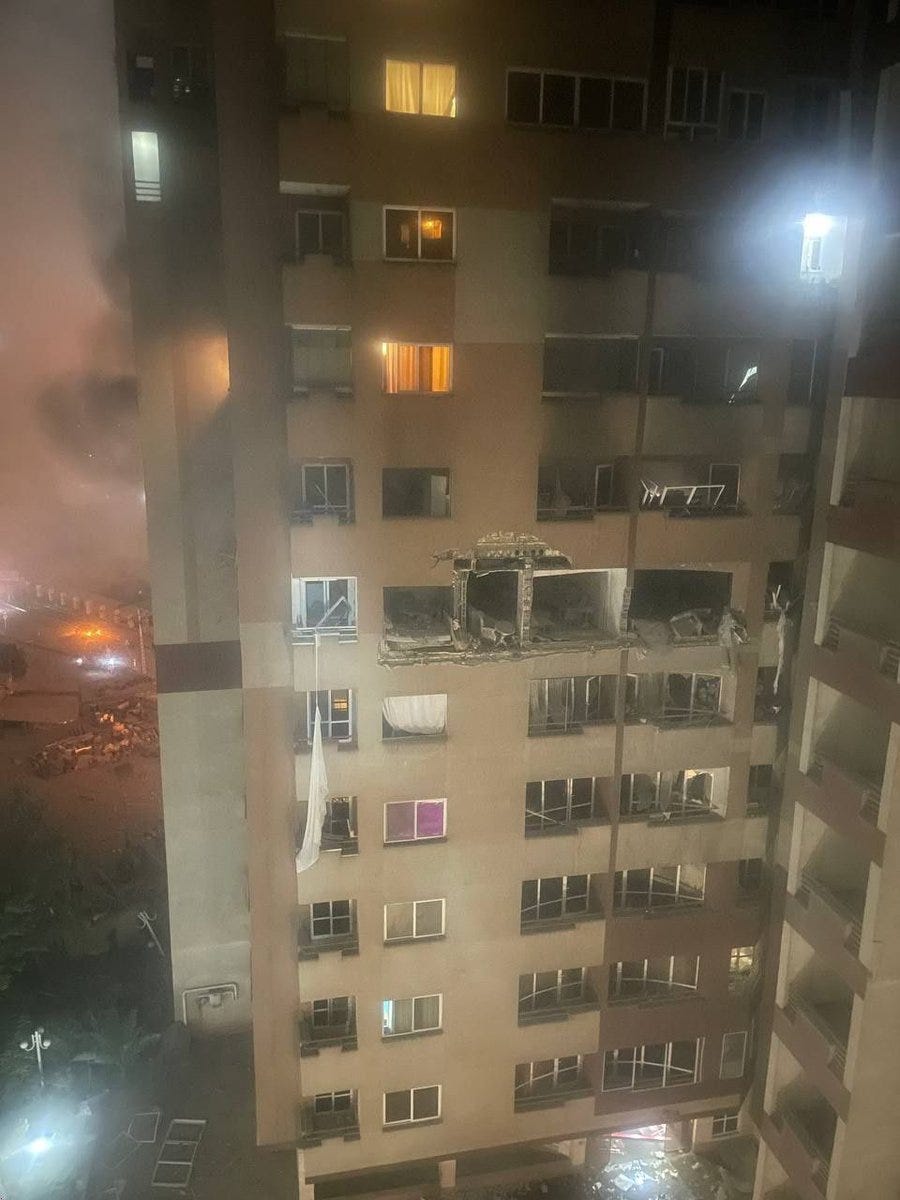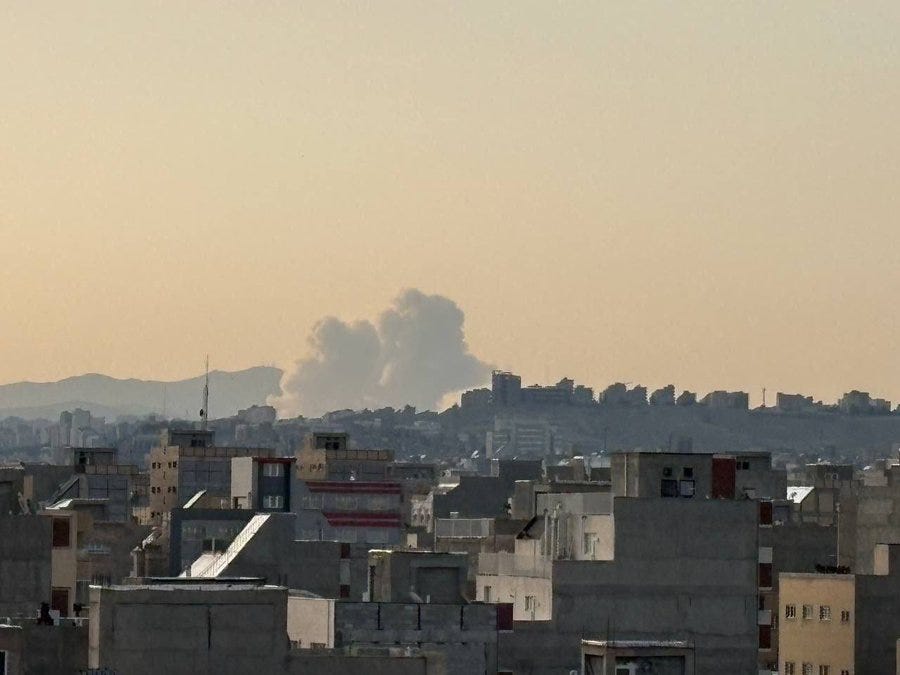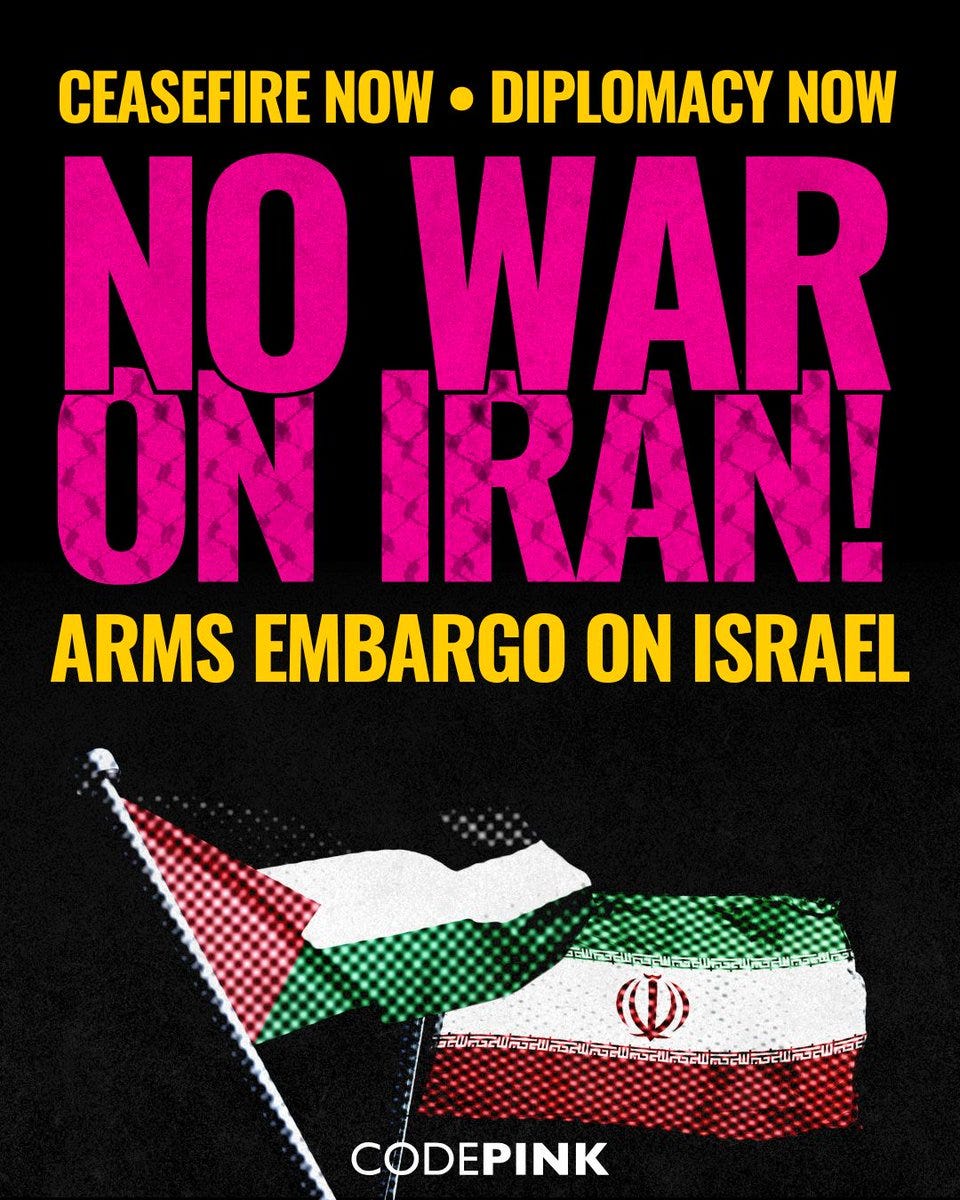BREAKING: America’s Favorite Rogue State Just Bombed Iran—and We’re Paying for It
As buildings collapse and children die, Israel cloaks its aggression in the language of fear—and the U.S. signs off without hesitation.
The sky over Tehran split open on June 13. Buildings crumbled. A child was pulled from the wreckage. Another airstrike. Another name added to the list of dead. The images are already old. They resemble Gaza, resemble Damascus, resemble Beirut. Because the violence never pauses long enough for mourning. Because the architecture of Israeli aggression is not episodic—it is constant, practiced, fluent.
This time, the target was Iran. And the bombs fell not only on military sites but on homes. On people. At least six military bases were hit, including the Parchin complex near Tehran. Iranian state media confirmed what the blast patterns already whispered: senior political and military officials killed, entire apartment blocks flattened, civilians buried beneath the cement of their own lives.
And still, the world is told to understand. Israel calls it Operation Rising Lion, as though this were a fable, as though the lion has not already devoured half the region. Netanyahu stood, yet again, before the cameras, cloaking another massacre in the language of preemption. He claimed they hit Natanz, the fortified uranium enrichment facility, and assassinated nuclear scientists. He promised that the strikes would continue “for as many days as it takes.” No clarity on what "it" is. No definition of what would be enough blood.
But the goal isn’t clarity. It never is. The goal is fire. The goal is provocation. The goal is war.
For months, Israel had warned it would act. It framed Iran’s nuclear program as an existential threat, though American intelligence has long stated otherwise. And while U.S. officials claim they weren’t involved in the strikes, the Israeli military says otherwise—that it was coordinating with the United States. U.S. embassies in the region had already begun evacuating staff. Trump had already signaled that something was coming. A wink, a nod, and then silence. This is how authorization is granted.
So let us name this for what it is: a coordinated escalation. A war-in-waiting, triggered on purpose.
There is a grim honesty among those who know. Harrison Mann, a former U.S. Army major and DIA executive officer for the Middle East, said plainly what few in Washington dare to acknowledge—that these strikes are not meant to destroy Iran’s nuclear program, because they cannot. Iran’s facilities are built under mountains. Their knowledge is human, retrainable, resilient. You cannot drone away a memory.
Instead, he said, the real objective is to provoke Iran into retaliating. To escalate the situation into a full-scale war. To draw the United States in. And the Americans, even when feigning reluctance, are ready.
This is how it always begins.
I remember Iraq. I remember Syria. I remember Libya. Always framed as reluctant interventions. Always draped in humanitarian slogans. But the strategy is old, worn at the edges: provoke, inflame, intervene. It has worked for decades. And Netanyahu, desperate to salvage his legacy and escape indictment, has mastered the rhythm of war as political theater.
There are whispers that the nuclear talks between Iran and the U.S. had begun moving again. That Iran was willing to limit enrichment for civilian energy. That diplomacy, fragile and gasping, had not yet died. But then the demands shifted. A Libya-style dismantlement. A humiliation. Tehran said no, and Tel Aviv answered with bombs.
This is not about disarmament. It is about domination.
It is not about defense. It is about reminding the region who has permission to exist.
And so Iran, cornered, now faces choices it never asked for: retaliate and risk a war, or absorb the humiliation and signal weakness. It may do neither. It may walk away from the Nuclear Non-Proliferation Treaty altogether. It may expel inspectors, go underground, and build the bomb that it has not, until now, chosen to build. Because when survival is not guaranteed, resistance becomes necessity.
And still, American officials feign surprise. As though the fires now lighting up Tehran were not sparked by their own hands.
There is a perverse pattern to this all. Israel moves as the world condemns it. It bombs as the UN votes against it. Last September, as Netanyahu stood at the UN podium, isolated and cornered, he ordered the assassination of Hassan Nasrallah. The plan failed. So he looked east. And now, as the UN General Assembly passes a resolution—149 nations calling on Israel to abide by international law—he answers with airstrikes on Tehran.
This is how Israel responds to appeals for law, for decency, for restraint. With bombs.
And the American political class looks on, divided not by ethics, but by strategy. The neoconservatives cheer. The so-called "America First" faction hesitates—not out of compassion, but because they worry the war may cost them votes. But make no mistake, if Israel keeps striking, the U.S. will follow. The leash may stretch, but it has never broken.
There are no illusions among Israeli military analysts. A report by the Washington Institute for Near East Policy was clear: these strikes are just the beginning. “Follow-on covert action and military strikes will be necessary for months, even years,” they wrote. There is no endgame here. Only escalation, only war. Forever war.
And still, we are asked to understand.
Israel bombs a sovereign capital, and we are told this is security.
Israel drops 300 airstrikes in a single night, and we are told to be measured in our response.
Children in Tehran are pulled lifeless from the ruins of their homes, and we are told this is defense.
There is no other state in the world that could act with such impunity. No other country that could set half the region alight and be welcomed with open arms in every Western capital. No other regime that murders across borders and still receives military aid by the billions.
This is not just exceptionalism. This is pathology.
Israel behaves like the perpetual victim, even as it becomes the architect of catastrophe. It kills and cries. It bombs and lectures. It silences resistance and demands sympathy. It has convinced the world that its security depends on everyone else’s submission. And we are all expected to nod along.
But I refuse.
I refuse to make my outrage polite.
I refuse to pretend this is normal.
I refuse to mourn selectively.
Israel is not defending itself. It is defending its supremacy. It is not fighting for peace. It is fighting to remind the world that no one can stop it. And until we name that—until we stop hiding behind nuance and complexity—the war will continue.
Because Israel will not stop on its own.
It must be stopped.
And the time for diplomatic whispers, for double standards, for tiptoeing around a rogue state’s feelings—has long since passed.







And I think Iran will stop it.
"Israel is not defending itself. It is defending its supremacy. It is not fighting for peace. It is fighting to remind the world that no one can stop it. And until we name that—until we stop hiding behind nuance and complexity—the war will continue.
Because Israel will not stop on its own.
It must be stopped.
And the time for diplomatic whispers, for double standards, for tiptoeing around a rogue state’s feelings—has long since passed."
Needs to go. Should never have been forced on Palestinians by the west and allowed to get off the ground.